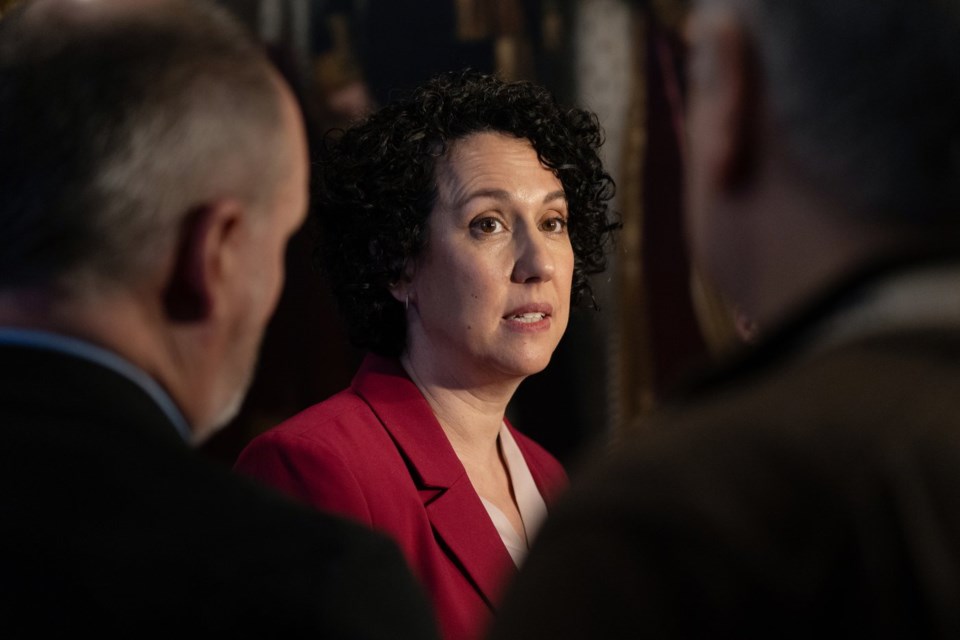HALIFAX — Nova Scotia still hasn’t signed on to the federal government’s pharmacare plan, and the province’s Opposition New Democrats are wondering why.
NDP Leader Claudia Chender said Friday that pharmacare was left off Nova Scotia’s list of priorities contained in a letter the premier sent earlier this week to Prime Minister Mark Carney. It doesn’t make sense, she said, to forgo federal funding that will help provide access to contraceptives and diabetes medications — the only two products that are part of the first phase of the federal program.
“This province has partially funded diabetes care, so this is a choice that should be made so much easier by the fact there is federal funding on the table,” Chender said.
She said she doesn't think the provincial government under the Progressive Conservatives is interested in publicly funded contraception. “It is an equity issue and it is a very problematic place for them to be,” Chender said.
However, Health Minister Michelle Thompson told reporters there is no resistance within the government to improving access to contraceptives. She added that while talks are ongoing with Ottawa, it’s unlikely any deal will be signed ahead of an expected federal election call this weekend.
Thompson said the province wants to make sure any deal makes sense financially and complements existing programming. She said her government also wants to know what will happen to the federal funding when the agreement expires.
“We need to be really mindful that whatever we negotiate is sustainable,” Thompson said.
Nova Scotia has an income-based funding program that covers the cost of devices that allow diabetes patients to monitor their blood sugar levels. The government also expanded its insulin pump program last year by removing the age cap for subsidies, which had been set at 26 years and under.
So far, Manitoba, British Columbia, Prince Edward Island and the Yukon have reached pharmacare agreements with the federal government.
Meanwhile, the federal Health Department announced a $39-million deal with Nova Scotia on Thursday to improve access to six drugs for rare diseases.
“We do cover a number (of diseases) already, but this will help us expand to other drugs,” Thompson said.
The drugs covered under the agreement include:
— Poteligeo, for the treatment of mycosis fungoides or Sézary syndrome;
— Oxlumo, for the treatment of hyperoxaluria type 1;
— Epkinly, for relapsed or refractory diffuse large B-cell lymphoma;
— Welireg, for the treatment of von Hippel-Lindau disease;
— Yescarta, for the treatment of follicular lymphoma, large B-cell lymphoma, diffuse large B-cell lymphoma, and high-grade B-cell lymphoma;
— Koselugo, for the treatment of neurofibromatosis type 1.
The federal department said the names of other drugs will be published online on a drug-by-drug basis after the conclusion of price negotiations for each medication. Innovative treatments for rare diseases can cost anywhere from $100,000 to more than $4 million per year, the federal government says.
This report by The Canadian Press was first published March 21, 2025.
Keith Doucette, The Canadian Press




